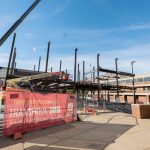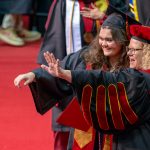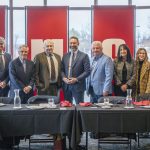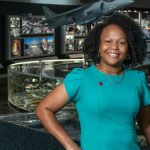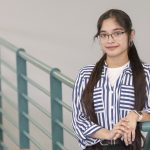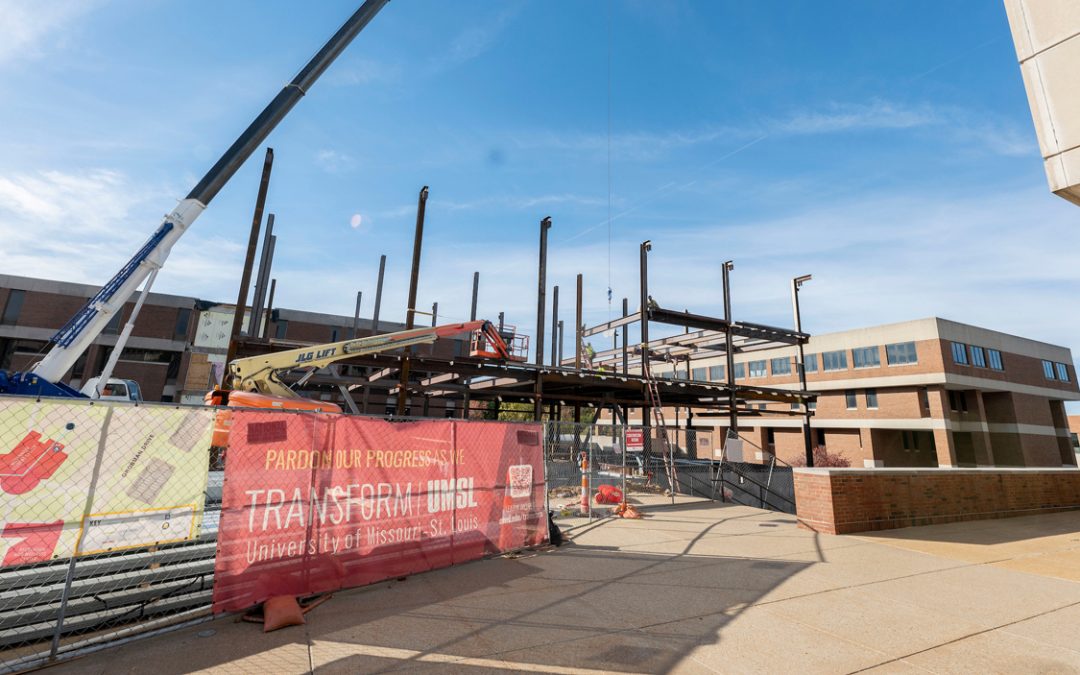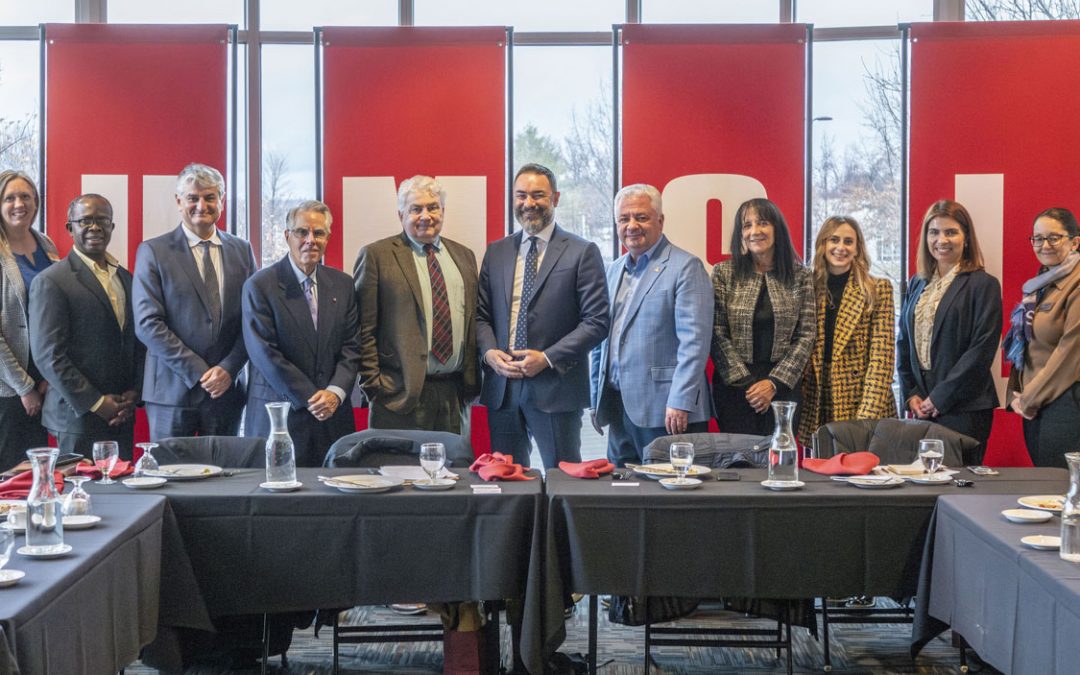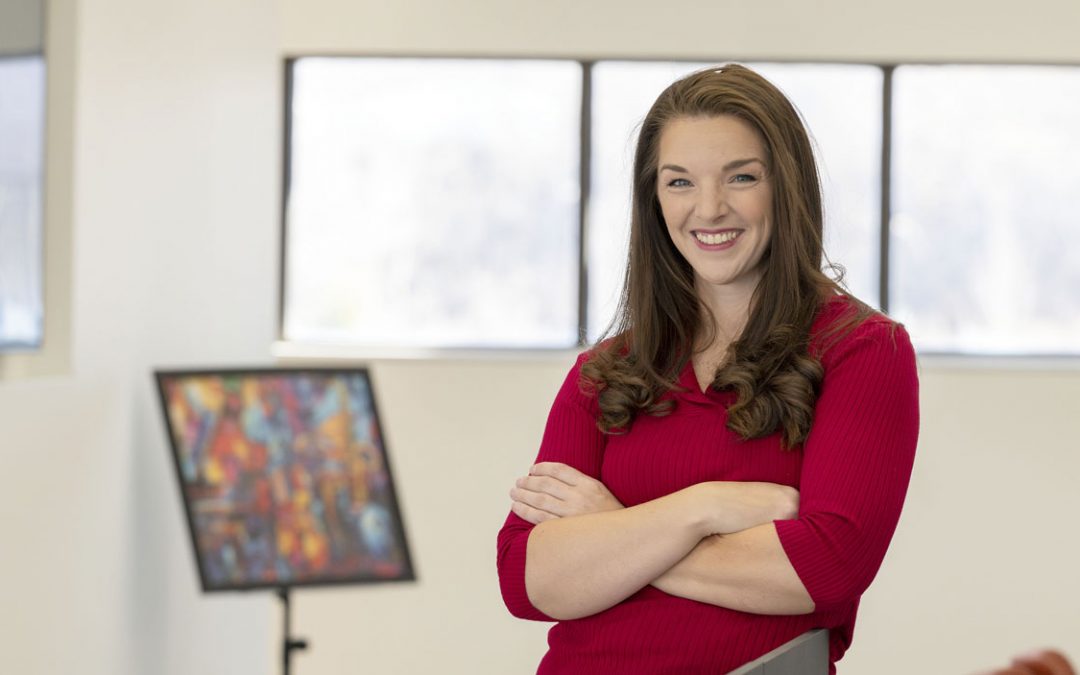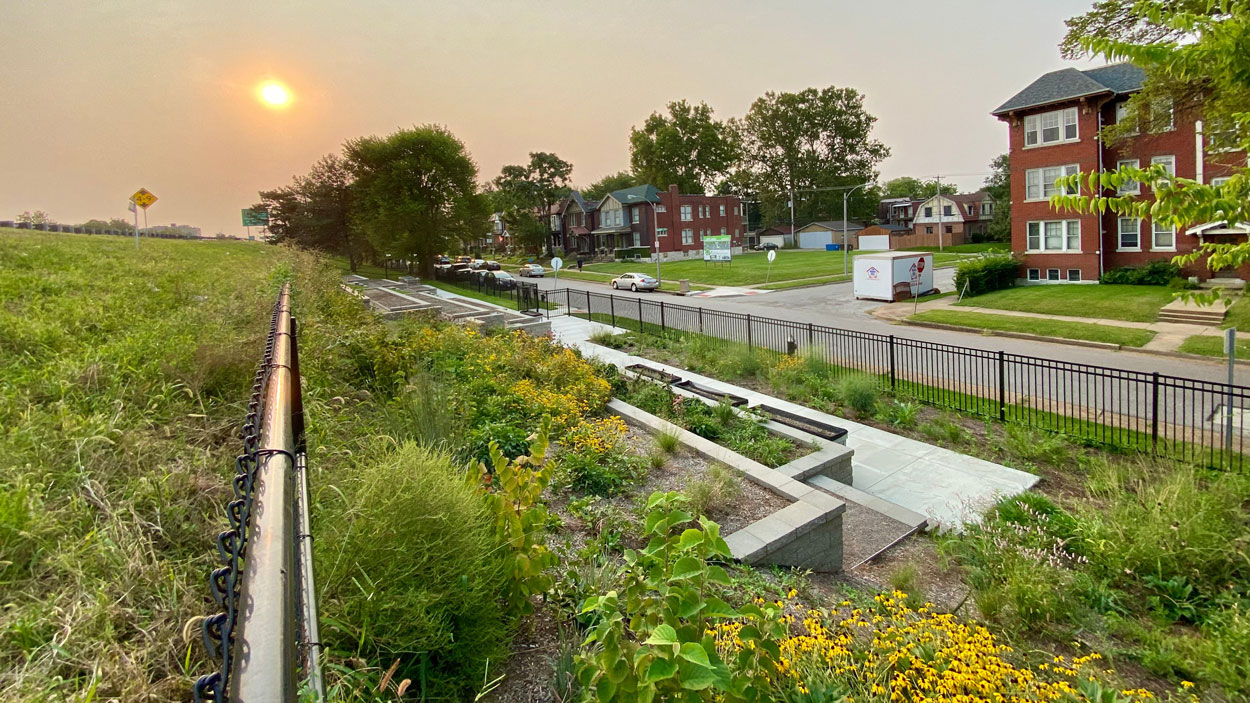
The sun sets over The Green House Venture’s Embankment Greenway along Interstate 44 in St. Louis. (Photo courtesy of The Green House Venture)
Aimee Dunlap, a nationally known cognitive ecologist in the Department of Biology at the University of Missouri–St. Louis, is launching a multiyear study of behavioral patterns of the bee populations at an urban agriculture research site along Interstate 44 in the city of St. Louis. She is partnering with The Green House Venture and aims to explore the positive impact of those behaviors on food production and sustainability.
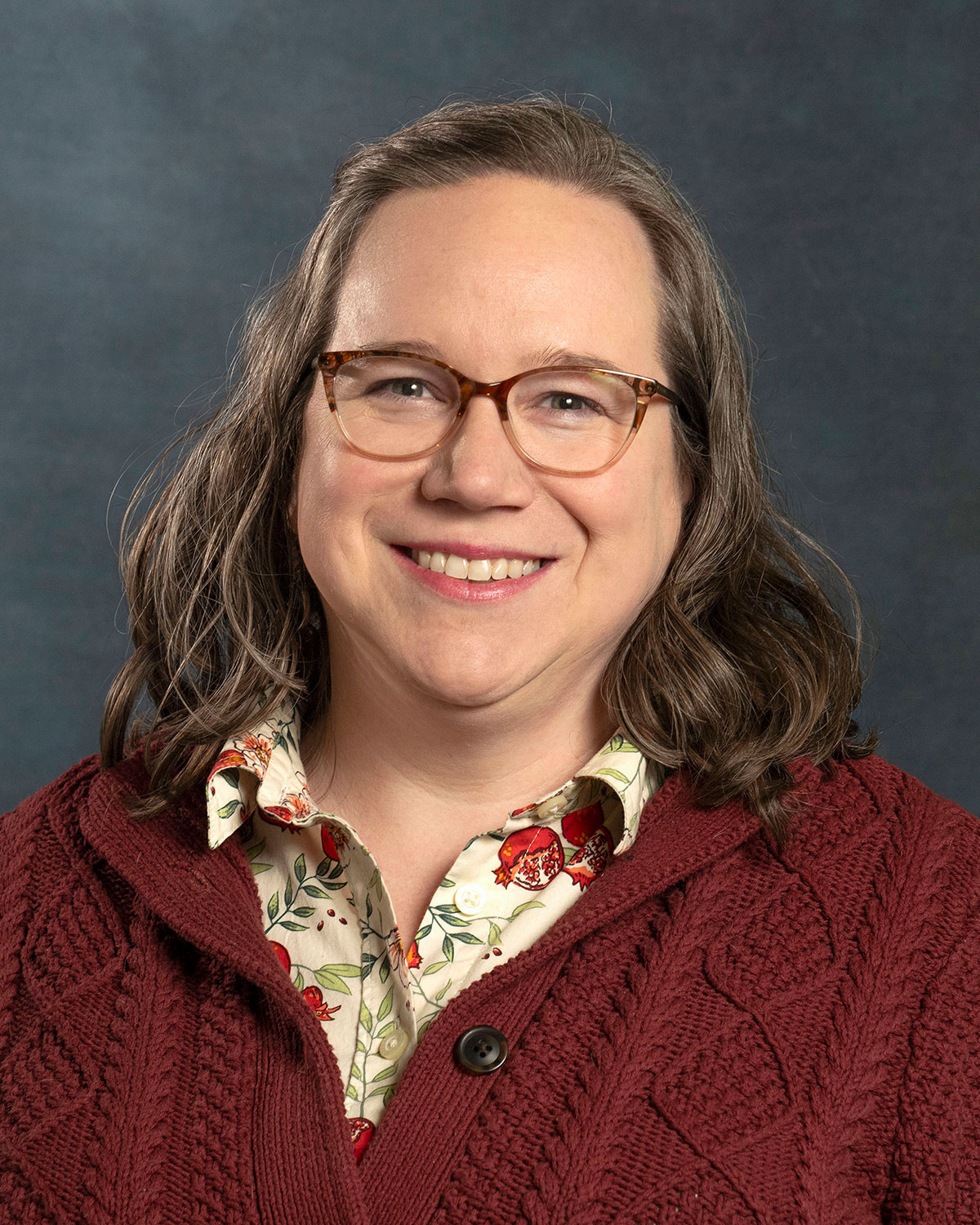
Aimee Dunlap
Dunlap will be comparing the nesting, foraging and pollination patterns of bees living at The Green House Venture’s Embankment Greenway to that of bees living in rural areas. The study follows the multiyear development of the Embankment Greenway along I-44 with native plants, successfully establishing a bee pollinator habitat that supports approximately 50 species of bees.
“This study will help determine if busy urban roadsides with green spaces can be repurposed into thriving bee habitats and sustainable parts of the nation’s food production system,” Dunlap said.
She is leading a team of UMSL scientists and graduate students with the Dunlap Cognitive Ecology Laboratory and the university’s Whitney R. Harris World Ecology Center and will study how different species of bees forage at the site, including the collection and distribution of pollen among different species of nearby plants. The team will also collect pollen samples from the site and develop a pollen library for research purposes.
The Green House Venture is an innovative STEM education program dedicated to educating and inspiring elementary students to create a sustainable world. It uses hands-on experiences in bioscience and urban agriculture to equip students with knowledge and skills needed to address pressing challenges in science, nutrition and dietetics as well as urban agriculture.
As part of the new study, Dunlap’s research team will invite students from four nearby elementary schools to observe the behaviors of the bees being studied and learn about the bees’ role in urban food production.
“We will use digital cameras with GoPro technology in the field and microscopes in school laboratories to help students understand the important behaviors and resulting impacts of the bees that we are studying,” Dunlap said. “We will also search for underground bee nests with the students and teach them the life cycles and habits of important bee populations.”
Tom Purcell, the president of The Green House Venture, is excited about the collaboration.
“Dr. Dunlap’s study is the next major step forward in our efforts to boost urban agriculture and sustainable food production research and education in the city of St. Louis,” Purcell said. “We seek to inspire future generations of St. Louis plant scientists to help develop a sustainable and affordable food supply in our region. This study will have a dramatic impact on helping us achieve our mission.”
Media Coverage
St. Louis Public Radio


